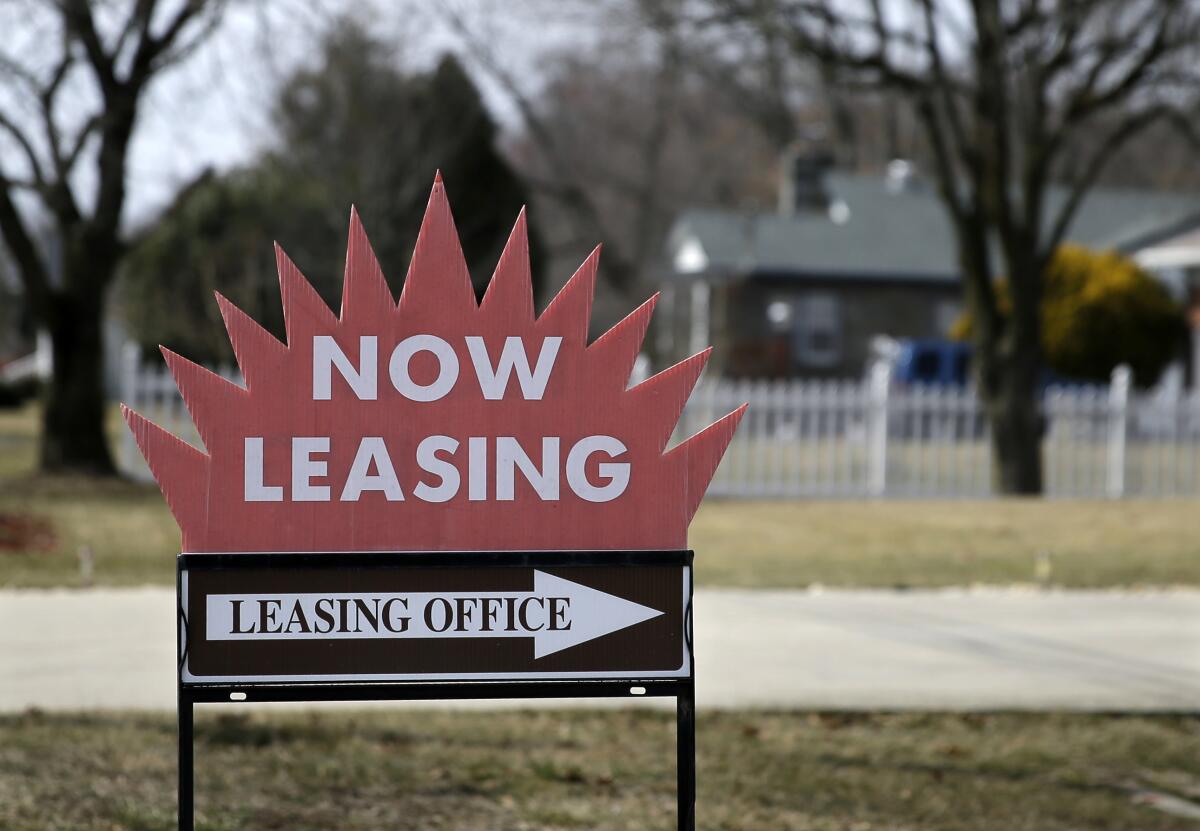Op-Ed: You should have the right to know your landlord’s name

- Share via
If you’re a renter, the odds are good that you don’t know the name of your landlord.
Today, anonymous shell companies own 18 million out of 48 million rental units nationwide, nearly 40% of the market. The proliferation of hidden ownership, not surprisingly, makes it easier to hide illicit activities.
The growing use of shell entities, like limited liability companies, has also had a powerful ripple effect on local economies, housing availability, homelessness and neighborhood blight.
To investigate these issues, journalists have fought to uncover the names of people who own property through shell companies. Two years ago, Reveal, a nonprofit investigative newsroom, filed a lawsuit to obtain from the U.S. Treasury Department the names of the individuals behind many of the shell companies that purchased residential property in the U.S. In January, a federal district court in California ruled that the department could withhold a 41,000 page spreadsheet containing those names.
Last week, partly in reaction to that federal case, Assemblyman Mike Gipson (D-Carson) introduced Assembly Bill 1199, which requires the secretary of State to collect “beneficial ownership” information from limited liability companies, and make it accessible to the public in a searchable database.
The phenomenon of individuals hiding their identities in property purchases through shell companies is a recent development, but it’s increasing rapidly. In 1991, the Census Bureau reported that 92% of all rental properties were owned by named individuals. Today, according to the Treasury Department, all-cash transactions (many made by shell companies) account for one in four residential purchases nationwide.
Transparency of land ownership has been a cornerstone of America’s legal system since before the nation’s founding, for good reasons. Publication of ownership records prevents and resolves disputes over property rights, facilitates the enforcement of tenant rights and provides economic certainty to landowners. Anonymity, on the other hand, fosters corruption, abuse and landlord negligence.
In the 17th century, land title records systems in the American colonies made information about ownership publicly available. As the nation grew, that principle became firmly cemented in American law. The public registries that the colonists developed into “the first nationwide, comprehensive, transparent property recording system in the world,” as K-Sue Park, a law professor at Georgetown University, stated in a declaration for Reveal’s lawsuit. Eventually, that system became the global standard.
But in the late 1970s, many states enacted laws creating limited liability companies. In many places, LLCs and other legal entities are not required to disclose their owners’ identities to state regulators. Over time, LLCs became a popular vehicle used to purchase real estate anonymously.
This lack of transparency creates a multitude of problems. Tenants who have issues with negligent landlords don’t know where to turn. Local officials don’t know whom to hold accountable for code violations or neighborhood blight. News organizations like The Guardian, The Washington Post and The New York Times have reported on secret ownership making evictions easier, while consolidating property in fewer hands.
The ability to shield the identity of property owners has also made money laundering and corrupt transactions less difficult to hide. For instance, all-cash purchases by LLCs have contributed to deed fraud, where individuals are induced to sign over deeds in exchange for false promises of financial help with mortgage-delinquent properties. Reports have shown international actors to have engaged in questionable activities through LLC purchases of U.S. property.
To combat this problem, some states and cities have imposed ownership disclosure requirements on shell companies in their jurisdictions. In 2019, New York passed legislation requiring LLCs to reveal who owns the LLC in a mandatory tax form. Similar laws have been passed in Washington D.C. and Philadelphia.
Outside the U.S., more than 50 nations require disclosure of beneficial ownership information of shell companies. Countries like the United Kingdom and Sweden even require that this information be included in publicly accessible databases. These countries have found that transparency can help prevent tax evasion and keeping public registries of names deters money laundering.
Congress is taking some steps to identify the individuals behind shell companies. Rep. Carolyn Maloney (D-N.Y.), sponsor of the Corporate Transparency Act, stated that the bill would prevent bad actors from using these entities to thwart law enforcement. Beyond that, it would help crack down on the use of LLCs to park illicit money in real estate, driving up housing costs and limiting availability.
The bill was enacted in November, but it doesn’t go far enough because it requires disclosure of LLC ownership only to the government, not the public.
Without Congress and the courts requiring the release of this vital information to the public, the likeliest path forward may come from the states, like California. Tenants should have the right to know who their landlords are — and real estate buyers should know who they are competing with in the marketplace. Passage of state disclosure laws would preserve the basic principle that property ownership should be public information.
D. Victoria Baranetsky is general counsel at Reveal from the Center for Investigative Reporting. @vdbaranetsky Aaron Glantz, a senior editor at KQED and author of “Homewreckers,” contributed research to this article. @Aaron_Glantz
More to Read
A cure for the common opinion
Get thought-provoking perspectives with our weekly newsletter.
You may occasionally receive promotional content from the Los Angeles Times.










